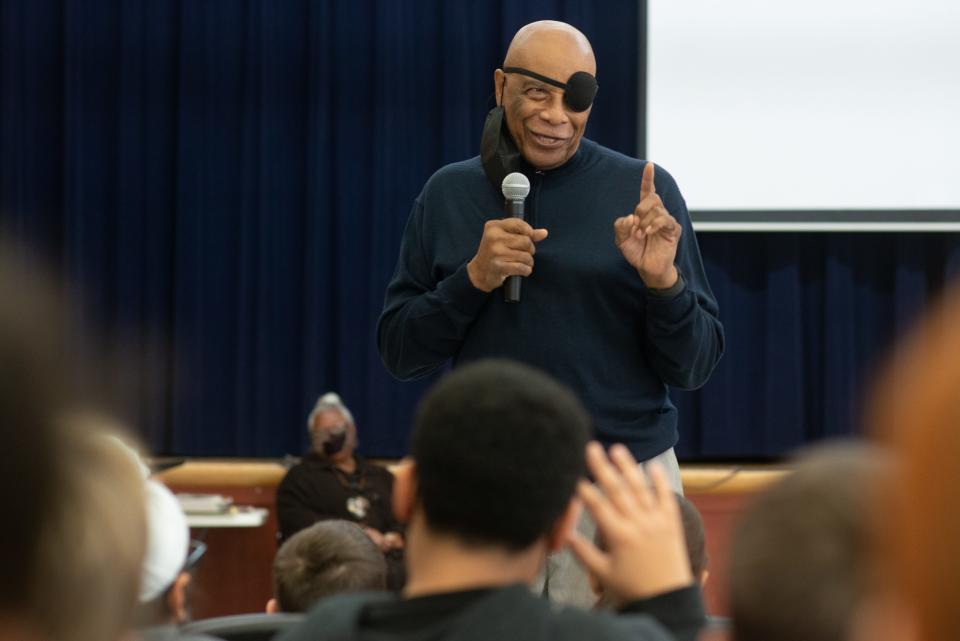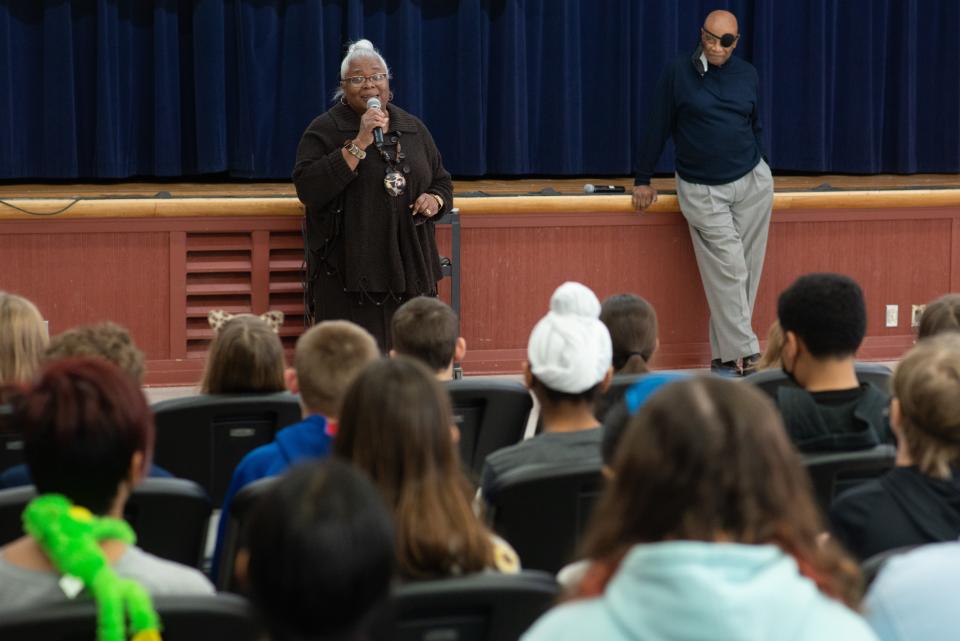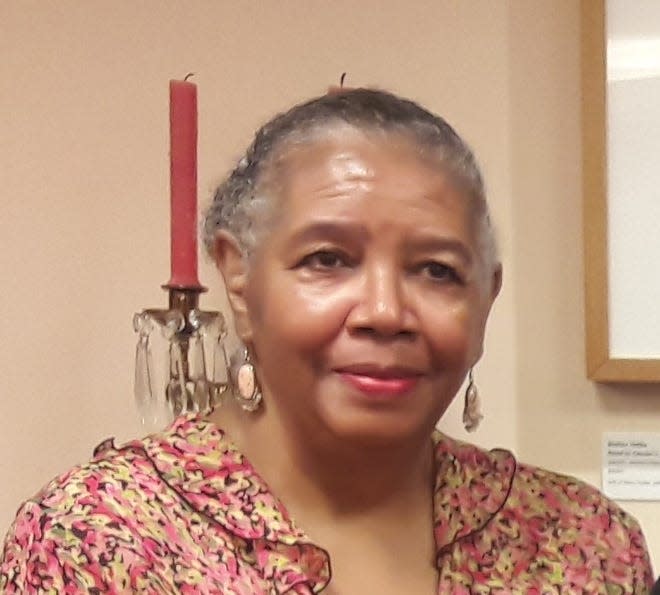How effectively is Topeka sharing its Black history? Educators, historians share contrasting views.
Topeka Collegiate School students listened intently this past week as Dale Cushinberry talked about the days he attended Topeka's all-Black Buchanan Elementary School.
Cushinberry, a retired principal for Topeka Unified School District 501, said he was a third-grader when racial segregation in schools was banned by the Brown v. Board of Education Supreme Court ruling, which Topekans played a key role in bringing about.
Before segregation was banned, Topeka's whites-only elementary schools offered more up-to-date books and better facilities and playgrounds than its elementary schools for Black children did, Cushinberry said.

Still, the quality of education provided by the all-Black schools was the same, he said.
More: Topeka's city government seeking funding to help it better understand its Black history, culture
'Very focused on trying to get information out'
Cushinberry joined USD 501 administrator Beryl New in talking Friday to Topeka Collegiate students about what life was like for Black residents in Topeka around the time of the Brown decision, which was made in 1954.
New cited the presentation as being an example of why she thinks this community is doing a commendable job of educating people about Topeka's rich Black history.
Residents here have access to numerous resources to help them learn about that history, including the Topeka and Shawnee County Public Library, and the Brown v. Board of Education National Historic Site, New said.
"This is a community-level undertaking, and it seems that people are very focused on trying to get information out," she said.
The National Park Service since 2004 has maintained the Brown v. Board site at the former Monroe School, 1515 S.E. Monroe, which played a key role in the Brown case.

Prior to COVID-19, all fourth-graders and seventh-graders in USD 501 visited the Brown v. Board site as well as the Ritchie House, which was a stop on the Underground Railroad, noted USD 501 assistant superintendent Billie Zabokrtsky-Wallace.
"The last two years there has been even greater opportunity for virtual visits," she said. "While we maintain virtual visits, we hope to return to in-person visits next school year."
USD 501 students at all grade levels also participate in all of the Living the Dream events and activities held here annually to focus on the legacy of Martin Luther King Jr., Zabokrtsky-Wallace said.
More: These 11 places played key roles in Black history of Topeka
Resident says Topeka has done a poor job

But Topekan Marty Patterson thinks this community has done a poor job teaching and sharing information about the Black history of Topeka and Kansas.
Patterson received a Living the Dream Award in 2019 for the work she's done preserving the stories of students who attended Topeka's all-Black elementary schools.
She describes herself as a "citizen on a fact-finding mission."
Patterson suggested most Topekans aren't familiar with McKinley Burnett — a pivotal figure in the Brown case, who was president at the time of the Topeka chapter of the NAACP — or with Katherine Carper Sawyer, who was 10 years old when she became the only student to testify in the Brown case in Topeka.
Katherine noted in her testimony that the bus that took her to the all-Black Buchanan Elementary School at 1195 S.W. Buchanan went past two all-white schools.
Patterson added that a lack of familiarity exists here with Topekans Oliver Brown, who was lead plaintiff in the Brown v. Board case, and Lucinda Todd, who played an integral role in that case.
She said if someone were to go to Washburn Rural High School in southwest Shawnee County and ask students there about Todd and Brown, they wouldn't know who they were.
'We don't honor Lucinda Todd'

Donna Rae Pearson says she's "probably somewhere in the middle" in terms of her opinion regarding whether this community does a good job sharing its Black history.
Pearson personally tries to tell that story as best she can in her position as local history librarian for the Topeka and Shawnee County Public Library, she said.
But spotlighting Topeka's Black history is not her full-time job, Pearson stressed.
She suggested this community could more effectively get the word out about its history in general and its Black history in particular.
Even with the Brown case, Pearson said: "We've almost forgotten it was basically 12 African-American women and one man who made that happen. We don't honor Lucinda Todd. We barely honor Oliver Brown."
Pearson said it wasn't clear who is ultimately responsible for teaching this community about its history.
She noted that Wichita, where she is from, offers both the Wichita-Sedgwick County Historical Museum — which focuses on that community's history — and the Kansas African American Museum, which describes itself on its website as being "the premiere home of Kansas African American History and Artifacts."
Pearson said she wished Topeka had a museum focusing specifically on its local history.
This article originally appeared on Topeka Capital-Journal: Opinions vary regarding how well Topeka is sharing its Black history

